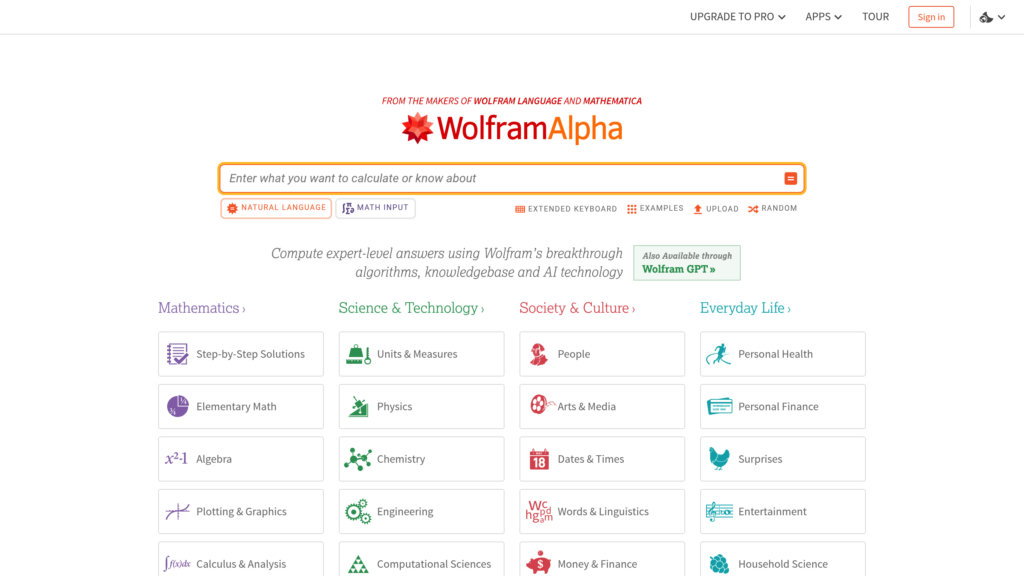WolframAlpha
Computational knowledge engine: natural language questions and expert answers
Introduction
What is WolframAlpha?
WolframAlpha is a powerful computational knowledge engine created by Wolfram Research. It processes natural language inquiries to generate accurate answers by performing calculations on its vast repository of curated data. Distinct from standard search engines, it doesn't just list links but computes specific results, creates visual models, and offers deep insights for subjects ranging from mathematics and engineering to finance and everyday life. It is an indispensable tool for students, teachers, professionals, and researchers who require trustworthy, computed answers and educational breakdowns.
Key Features:
• Intuitive Natural Language Processing: Pose questions in simple, everyday language without the need for specialized syntax or code.
• Powerful Computational Abilities: Executes intricate mathematical operations, solves complex equations, and performs multi-domain data analysis with high accuracy.
• Educational Step-by-Step Guidance: Breaks down solutions to math and science problems into manageable steps to enhance understanding.
• Dynamic Visual Representations: Creates interactive charts, graphs, and visual models to bring data and computations to life.
• Comprehensive Expert-Curated Data: Draws upon reliable, up-to-date information from trusted sources spanning science, nutrition, economics, and geography.
• Seamless Wolfram Language Integration: Offers programmatic control and customization for developers and advanced users within their own applications.
Use Cases:
• Academic Learning: Aids students and educators in tackling academic challenges, understanding complex topics, and creating instructional content.
• Professional Research: Empowers scientists with robust data processing, modeling capabilities, and experimental analysis.
• Technical Engineering: Assists engineers in performing critical calculations, optimizing designs, and visualizing technical systems.
• Business and Finance: Supports financial analysts with economic metrics, investment modeling, and market analysis.
• Daily Information Needs: Helps general users with quick tasks like unit conversion, calorie counting, and factual checks.
